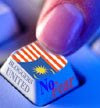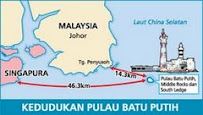
I would like to use this opportunity to discuss about the idea of this book that I have read it a few weeks ago. The book written by Dato’ Shukor Omar is a one of my favorite books that I have ever read during my lifetime.
According to his writing, he would like to address the broader picture of the Malays and their business life. The development of Malay entrepreneurship in the past was thwarted by colonialism. Western colonialism had ended free trade and the spirit of entrepreneurship for the early Malay traders and Malay society at large. They continued to seek new opportunities to expand their economic interest, possibly through higher social status acquired from increased wealth derived from new colonies.
The Culture of the Malays and their failure to acquire Islamic values compatible to the values of success had contributed to their failure in business life. Being Muslim, Malay economic and political survival cannot be divorced from other Muslim-dominated states in this era of globalization and the bigger issue of Islamic unity.
The call for Muslim solidarity had been long recognized by Muslim community leaders. Finally, the Organization of Islamic Conference (OIC) was formed in 1972 with its headquarters in Jeddah, Saudi Arabia. Muslim majority countries are loosely affiliated through the OIC and are mainly dominated by Arabic speaking nations. Arabs have a superiority complex over non-Arabs speaking Muslim countries of Malaysia, Indonesia, Brunei, Iran, Pakistan, Turkey, Nigeria and others.
The billions of US dollars accumulated from the oil wealth of the OIC countries only suggest that a divided wealth and the monopolization of wealth by some ‘Prince’ and ‘Emirs’ are of no help to Islamic unity and economic strength. The only power that the OIC has is the ‘oil power’, which should be used to the common benefit of the ummah, while its sovereignty is still in tact.
Meanwhile, the author also proposes a model for the development of successful entrepreneurship. Understanding the basic theories may help to advance understanding of the subject and its requirements for successful entrepreneurship.
As a conclusion, the future of the Malays lies in their character and personal integrity compatible to the values of success. No amount of economic assistance could redeem their failure in business unless the transformation of their character and values take place. The Malays must learn and discover themselves from the inside out. Any change must come from the inside of the individual, not by being forced from the outside if its to be long lasting and meaningful. These requirements will spur Malay survival and success in terms of their spiritual, political and socioeconomic well-being.









































